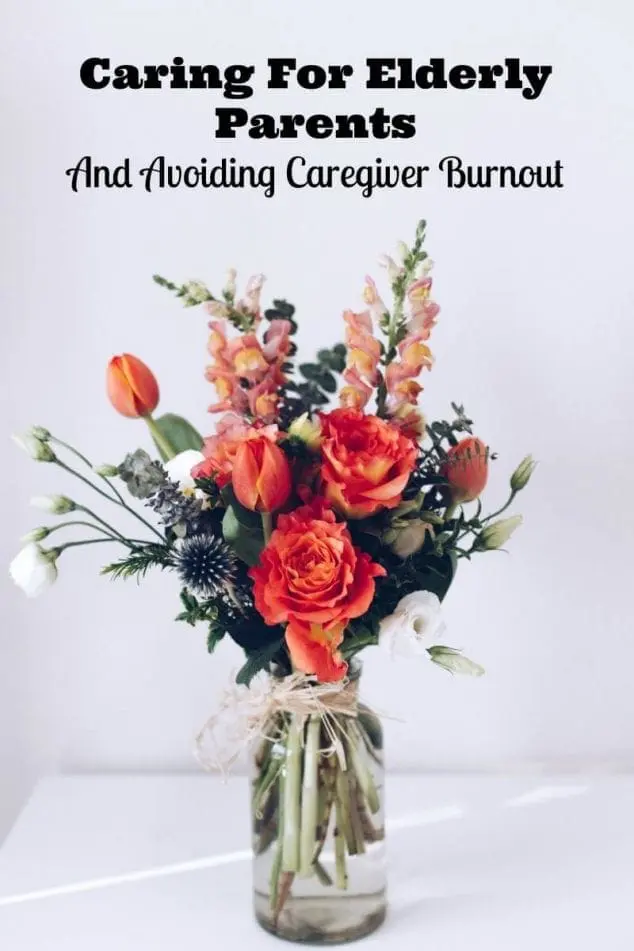There are many people who are part of “the sandwich generation.” You know, stuck in the middle of caring for kids under 18, and caring for elderly parents at the same time. For most, that is a recipe for caregiver burnout or at least tons of stress. While we may love our children and our parents more than anything else in the world, being a primary caregiver for both at the same time is draining and bound to cause fatigue. That is why I am so happy to have an expert share some tips with us today. She will talk about establishing boundaries in caregiving in order to reduce caregiver stress.
Jennifer L. FitzPatrick, MSW, LCSW-C, CSP is the author of Cruising Through Caregiving: Reducing The Stress of Caring For Your Loved One. Here is my affiliate link to the book on Amazon. She is also an instructor of Johns Hopkins University and a member of the Care Advisory Board for HFC, the non-profit founded by Seth Rogen and Lauren Miller Rogen. Certainly, she is an expert in the field of caregiving. She shares a personal story with us today that has an important message of setting boundaries and accepting your own limits.
Having helped my mother care for my grandmother until she was 100, I can tell you that I know how difficult senior care solutions can be. Caring for elderly parents can become a full time job. I also understand how emotionally draining it can be. I have nothing but the utmost respect and admiration for caregivers. Knowing that caregiver stress can be very real, I suggest you get any help you need. Consult with experts on how to best handle things.

Caregiving for Older Parents: What You Need to Know About Boundaries
By Jennifer L. FitzPatrick, MSW, LCSW-C, CSP
“I don’t want to sleep over there anymore!” My 63-year old father sounded like a little kid when he called me early one Saturday morning. He and the rest of our family had been taking turns staying at my Grandmother’s apartment since she’d begun the downward spiral of frequent falls and multiple hospitalizations.
I listened to my Dad complain about how he had reached his breaking point. He couldn’t get a good night’s sleep on my Grandmother’s couch. He was tired of the disruption to his evening routine. While he was willing to continue visiting, taking her to her doctor’s appointments and running errands, he was done with sleeping over.
Reaching A Critical Point In The Caregiving Process
We’d reached a critical point in the caregiving process. The first caregiver had finally established some boundaries.
My Dad and my aunts, my Grandmother’s primary caregivers, were all burning out. Although my Dad was the first one to say it, they were all exhausted. They had been missing work and neglecting their own self-care.
After letting my father vent for a while, I responded, “You don’t have to sleep over there anymore. You don’t have to do anything you don’t want to do.” I think he was a little shocked that I was supporting his boundary.
Even though my Dad was very close with my Grandmother and his sisters, he was reluctant to tell them that he’d hit a breaking point. With his permission, I shared this conversation with them. I reminded everyone that sprinkling in some home caregiver help and maybe looking at assisted living were options as well.

My Grandmother was hurt and shocked by the idea of bringing help into the home. She also balked at the idea of moving out of her apartment. Since my Grandmother had absolutely no cognitive impairment, ultimately the decision to refuse home care and assisted living was hers.
Setting Caregiving Boundaries
But as much as my Grandmother had a right to say she didn’t want a home care aide or to move, her family caregivers had every right to say what we didn’t want to do as well. A lot of family caregivers forget this; I know many people in my family did. Everyone has a right to say what they will or won’t do in a caregiving situation.
I decided that I was going to remind my Grandmother of this. During my next “turn” sleeping over at her apartment, once again, I broached the topic. I suggested adding home care into the rotation of who would sleep over at her apartment. I asked her why she was so against the idea and she replied that she didn’t “need help;” she just enjoyed having someone visit with her all the time now. Candidly I told her that her daughters and son were very tired and needed more breaks; home care would allow for that. My Grandmother then became very irritable and said that everyone could stop sleeping over since she could take care of herself.
Can They Care For Themselves?
I challenged her to do just that during my visit: take care of yourself while I’m here. Let’s just treat this like a regular visit. For a full hour, I encouraged my Grandmother to attempt to get her own beverage from the refrigerator, to hobble to the bathroom solo and to take her medication on time. After just a one hour experiment of trying to take care of herself with no assistance, she looked at me with tears in her eyes. She got it.
When we constantly “prop up” our older loved ones who are declining, sometimes they mistakenly believe that they are functioning independently. This leads to a cycle of dependence on the family caregivers and burnout and resentment for everyone involved. When burned out family caregivers don’t set limits, they are at risk for a number of health and mental health problems. They are also less likely to provide good care and more likely to engage in unintentional abuse and neglect of their loved one.
Soon after this experiment, my Grandmother agreed to allow home care into her apartment. She was paired up with some lovely aides who took great care of her. While the rest of the family still was very involved in caregiving, my aunts and my father got some much-deserved time off.
Everyone’s boundaries are different. Think about what yours are and don’t be afraid to establish them. I am grateful that my Dad was brave enough to tell us when he’d had enough. His declaration set into a motion a much healthier caregiving experience for everyone, including my Grandmother.
Conclusion
Thanks again to Jennifer L. FitzPatrick for sharing her family’s experience of caring for elderly parents and how they were able to set boundaries in order to prevent caregiver burnout.
Avoiding caregiver burnout while caring for both children and aging parents requires intention, compassion, and realistic expectations. Recognizing limits, asking for help, and prioritizing self-care are not signs of failure but essential acts of sustainability that allow caregiving to continue with patience and love. By setting boundaries, sharing responsibilities, and making space for rest and emotional support, caregivers can protect their own well-being while still showing up fully for the people who depend on them. In doing so, they model resilience and healthy balance for their children and create a caregiving journey that is not only survivable, but meaningful and grounded in connection rather than exhaustion.
Caregiving stress is real and it can be full of challenges but it is also a rewarding and special experience in its own way. Have you ever been a caregiver for older parents?
Related Posts:
Family vs Career: Finding Balance

William says
This really resonated with me. I’m in the “sandwich generation” right now, caring for my kids while also helping aging parents, and it can feel overwhelming in ways that are hard to explain unless you’re living it. I appreciated how you emphasized boundaries and self-care—those are lessons I’ve had to learn the hard way after pushing myself too far and realizing burnout doesn’t help anyone. Thank you for validating the emotional weight of this season and for offering such a compassionate reminder that caring for ourselves is part of caring well for the people we love.
Jenny says
This was such a thoughtful and reassuring read. Balancing the needs of children and parents at the same time can feel like a constant juggling act, and it’s comforting to see that experience acknowledged so honestly. I especially loved the reminder that asking for help isn’t weakness—it’s survival. As someone walking this path myself, it meant a lot to read encouragement that centers grace, patience, and small moments of rest. Thank you for sharing something that made me feel seen and a little less alone in this season.